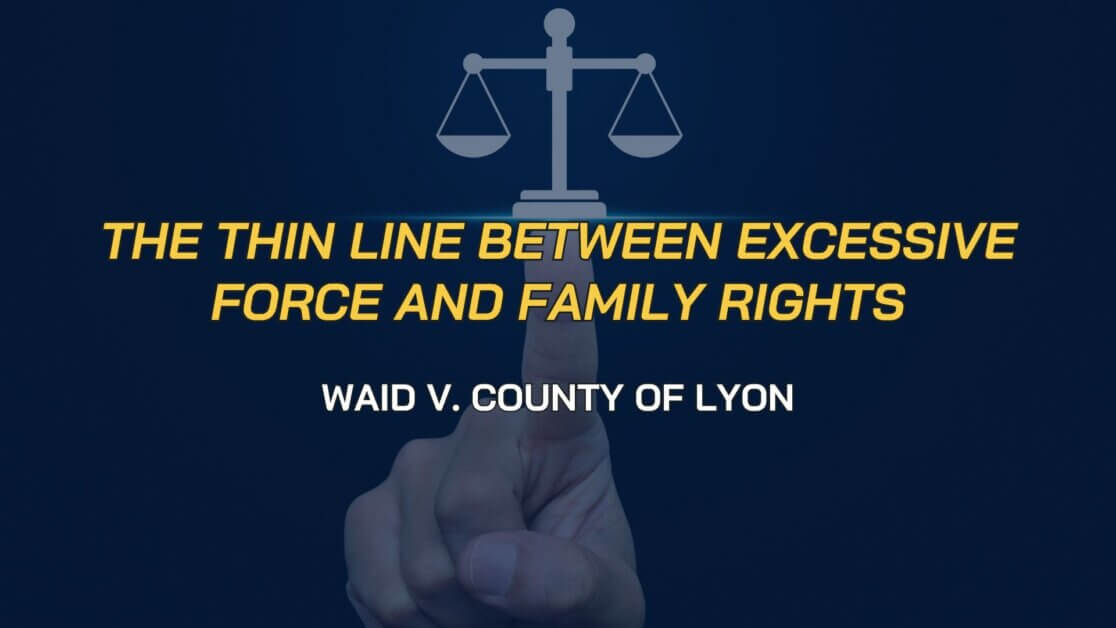The Third Circuit Court of Appeals recently rendered a decision in United States v. Montalvo Flores, examining the extent of an individual’s Fourth Amendment rights, and addressing whether an unauthorized driver has a reasonable expectation of privacy in a rental car.1 Hearing the case on appeal, the Third Circuit found that a driver’s status as an unauthorized driver will not defeat his or her otherwise reasonable expectation of privacy.
This case arose after officers swarmed a New Jersey hotel room to execute an arrest warrant for Christopher Montalvo-Flores, in connection with his suspected involvement in a robbery. At an earlier point, officers observed the defendant’s girlfriend exchange the car and car keys with Montalvo-Flores, despite him not possessing a valid driver’s license. The officers contacted an Enterprise Regional risk manager and explained Montalvo-Flores’ involvement in criminal activities while using the vehicle, eventually obtaining consent to search the vehicle. During the ensuing execution of the warrant, officers discovered a set of car keys, which Montalvo-Flores identified as his, belonging to an Enterprise rental vehicle located in the parking lot of the Hotel. A subsequent search of the trunk of the rental vehicle turned over 304 grams of cocaine, leading to charges for possession with intent to distribute cocaine. The defendant moved to suppress the evidence of the cocaine, arguing that he had obtained permission from his girlfriend to use the car, which gave him lawful possession and control of the vehicle. However, the District court rejected the suppression motion. The court reasoned that there was insufficient evidence to prove Montalvo-Flores’ dominion and control over the rental car, further emphasizing that that mere possession of car keys does not establish a reasonable expectation of privacy in a vehicle rented to third parties, especially given Montalvo-Flores’ lack of a driver’s license. After receiving this unfavorable outcome at the District court, the defendant appealed, seeking review by the United States Court of Appeals for the Third Circuit.
On appeal, the Third Circuit considered a pivotal question, “whether Montalvo-Flores had a Fourth Amendment interest in his girlfriend’s rental car?” The Third Circuit reversed the district court’s decision, supporting Flores’ motion to suppress the evidence. The Court found that Montalvo-Flores had dominion and control of the car and that he had a reasonable expectation of privacy in the rental vehicle.
The Circuit explained, an individual’s entitlement to Fourth Amendment protection depends on whether the individual has a legitimate expectation of privacy in the invaded place. First, the Court considered whether the defendant exhibited an actual, subjective, expectation of privacy. The Court found that the defendant undoubtedly had a subjective expectation of privacy in his girlfriend’s rental car, pointing to the moment when, after the officers seized the car keys, the defendant verbally protested, shouting, “those are my rent-a-car keys!” Since the officers needed the keys to access the car, which was locked and parked outside his hotel, it’s obvious Montalvo-Flores saw the car as his private space and took steps to preserve that privacy.
The Court moved on, assessing whether the defendant’s expectation was one that society is prepared to recognize as reasonable. The Court emphasized that this determination bears on the strength of the individual’s interest in the car and the nature of their control over it.2 The Circuit explained, beyond merely keeping the vehicle locked, close by, and possessing the car keys, the defendant had dominion and control over the car with his girlfriend’s permission. The Court cited the following as evidence to support its findings. First, the Detective in the case provided testimony that when he obtained the keys from Flores, he assumed that the defendant possessed the vehicle. Next, the consent to search the car that was provided by the Enterprise agent, was partly influenced by her belief that Montalvo-Flores should not have had possession of the vehicle, as he had not signed the rental agreement. Finally, the vehicle, parked outside his hotel room, had not been reported as either lost or stolen.
The Court’s decision in this case, aligns with the Supreme Court precedent in Byrd v. United States. is in line with the Supreme Court precedent set in Byrd v. United States.3 Byrd clarified that being an unauthorized driver does not automatically negate a reasonable expectation of privacy under the Fourth Amendment. While this case did not establish a blanket rule for unauthorized drivers, it did reject the overly restrictive interpretation of the Fourth Amendment’s protections. It advises courts to thoroughly examine if a person not listed on a rental agreement has the right to object to a search of the vehicle. The Third Circuit’s decision in this case accurately applies that approach.
The critical lesson from this case, as well as the Byrd ruling, serves as a crucial lesson for law enforcement officers. It underscores the need for careful assessment and documentation regarding a suspect’s authority and control over a rental vehicle, especially when the suspect is not listed in the rental agreement. This detailed evaluation is crucial for determining the legality of a search and the admissibility of any evidence found.



